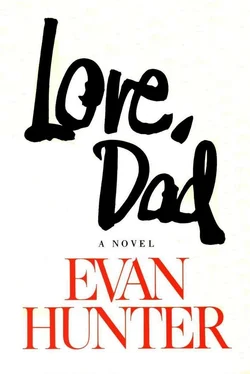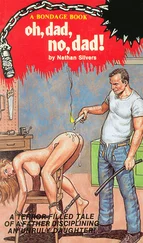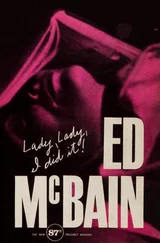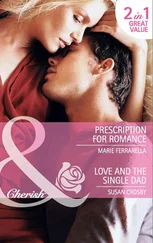Late that night, she and Barbara had their first really serious talk about the trip. The girls were lying in nightgowns on the mattress in Barbara’s bedroom, smoking. Barbara was saying she wouldn’t dare take her stash to London with her, the customs officials there were supposed to be murderous, and besides you could get marijuana any place in Europe, even in tight-assed London, where they called it cannabis, “which is a much more civilized word for it, don’t you think?” she asked. They were silent for several moments, passing the toke between them.
“Liss,” Barbara said, “do you think there’s any chance at all you might come with me?”
“I’d love to, but...”
“Is it the money?”
“Yes, that. But mostly... well... my parents, mostly.”
“Why would you have to tell them?”
“That I’m going all the way to Europe? Of course I’d have to tell them.”
“Why?”
“Well... don’t your parents know?”
“My mother does. She and Dad are divorced.”
“Well, how does she feel about it?”
“She couldn’t care less,” Barbara said, and shrugged. “She’s been living with a real estate broker in Providence, they’ve got their own thing, they’re not worried about mine.”
“My parents would take a fit,” Lissie said.
“So fuck ’em,” Barbara said cheerfully.
“Well, it’s... you know... Europe.”
“Can I say something?”
“Sure, what?”
“You won’t get offended?”
“No, no.”
“You sometimes seem very young for eighteen.”
“Yeah, I know.”
“You still haven’t got any idea what it’s like to be on your own, have you?”
“I guess not.”
“Just don’t give them a chance to say no, Liss. Given the opportunity, there isn’t a parent on God’s green earth who’ll say yes when he can just as easily say no.”
“Oh, sure, I know that.”
“What you do is you tell them after you get there.”
“Oh, yeah, I wouldn’t tell them before.”
“How much money do you think you can raise?”
“Maybe fifteen hundred dollars. That’s if I can sell some...”
“God, that would last you forever! You’d never have to go home, if you didn’t want to.”
“I’d have to go back to Boston for it, though. Five hundred is in my savings account there.”
“What have you got in checking?”
“Just another hundred or so.”
“How’s your passport?”
“How is it? What do you mean?”
“Well, first of all, where is it?”
“In Boston. I use it when I’m cashing checks. Saves a lot of hassle.”
“It hasn’t expired, has it?”
“It did last year, but I had it renewed. It’s good till 1974. That’s what they’re good for, isn’t it? Five years?”
“That’s right. So what’s bothering you?”
“Nothing. It’s just...”
“Here’s how you work it,” Barbara said. “You leave early tomorrow morning, you get home before Easter, you understand? That’s because you’re so fucking contrite. You square it all away with your father, tell him how sorry you are about the hassle on the phone, and then you go back to school. But back to the dorm. That’s what all the shit was about, your living with Judd. So, okay, you go back to the dorm, and you call them every night and tell them how glad you are they saved you from that fucking den of iniquity on Commonwealth Avenue. Meanwhile, you’re getting your cash together and packing your things. On April seventeenth, you meet me at Kennedy, and off we go.”
“You think I should, huh?”
“I think you should.”
“Leave early tomorrow morning, huh?”
“Get home by Saturday, maybe sooner.”
“Mm.”
“Liss, please come with me, okay?”
Lissie was silent for a moment.
“Liss?”
“Yes,” she said.
“What?”
“I said yes.”
“What?”
“Yes,” Lissie said, grinning. “ Yes!”
“Jesus!” Barbara said. “Oh, Jesus! Oh, dear God, thank you so much, oh, Jesus, Lissie!” she said, and suddenly hugged her.
They spent their first night in London sleeping in Trafalgar Square, together with what appeared to be a thousand other kids from nations all over the world — Americans, of course, but kids from Germany, France, the Netherlands, and even India and Japan as well. The sense of open camaraderie was akin to what Lissie had felt at Woodstock the summer before. Here was a massive congregation of kids united by their dress, their casual use of drugs, their musical preferences, their seeming poverty, and an attitude that was clearly anti-Establishment and therefore threatening to adults, despite the kids’ wide smiles and cheerful greetings.
They found lodgings the next day at a rooming house off Bayswater Road (thirty-five shillings for bed and breakfast) convenient to Soho and the theater district, a short walk to Kensington Gardens, and a twenty-minute bus ride to Chelsea. In their exploration of the city that day — they had arrived late the night before, too exhausted to do anything but find a spot to flop in Trafalgar Square — they scrupulously avoided anything they considered to be tourist attractions. The “tourists” were all those Americans who sauntered out of Claridge’s or the Ritz on their way to visit the Tower of London or the Houses of Parliament, Westminster Abbey or the British Museum. The tourists were all those faceless American businessmen in gray flannel suits — gabardine, actually, now that the promise of spring sunshine tantalized a populace peering expectantly at the broken cloud cover overhead. The tourists were all those overly madeup American women (to Lissie and Barbara, the tourists were always Americans) flaunting precious gems on their fingers and around their throats, emerging on wafting scents of expensive perfume from the Mirabelle or Le Gavroche, their laughter bright but somehow forced.
In the girls’ minds, Mr. and Mrs. America Abroad were awakened at eight to be served continental breakfast in their balconied room overlooking a Mayfair square; at nine, they left the hotel for a scheduled outing to the Portobello Road Market (provided it was Saturday); lunch afterward at that quaint little cheese restaurant in an alley off Fleet Street, recommended by Fielding, and Fodor, and perhaps Aunt Martha as well; a brief walk to Dr. Johnson’s house in Gough Square, and from there by taxi to the Tate Museum or Madame Tussaud’s; drinks at The Bunch of Grapes in Shepherd Market, and then back to the hotel to change out of the low-heeled walking shoes and tweedy skirt, the unmatching slacks and rowdy sports jacket, into something elegant for the theater and dinner-dancing later at the Savoy; home (the hotel was “home,” the Americans referred to it as such in Barbara and Lissie’s fantasy) before eleven to order cognac from the hall waiter and to sip it while watching the late-night news on BBC-2; and then at last to bed—
“Another big day tomorrow, darling.”
“Night-night, sweets.”
Tourists.
The London Barbara and Lissie created for themselves was as much a figment of their imagination as the limited, prejudiced (though partially valid) tour-guide fantasy they had created for their adult counterparts. It never occurred to either of the girls that by forsaking St. Paul’s Cathedral for a shopping spree in the jeans shops mushrooming along Oxford Street, by preferring a trip to the new Lord Kitchener’s Valet rather than to the magnificent Middle Temple Hall where Shakespeare himself first produced Twelfth Night in 1601, by fashionably opting for the “in” head shops along King’s Road rather than the serene and timeless Albert Memorial in Kensington Gardens, they were in effect reducing the foreign city that surrounded them to something as familiar as New York or New Haven, and thereby nullifying its very existence.
Читать дальше












